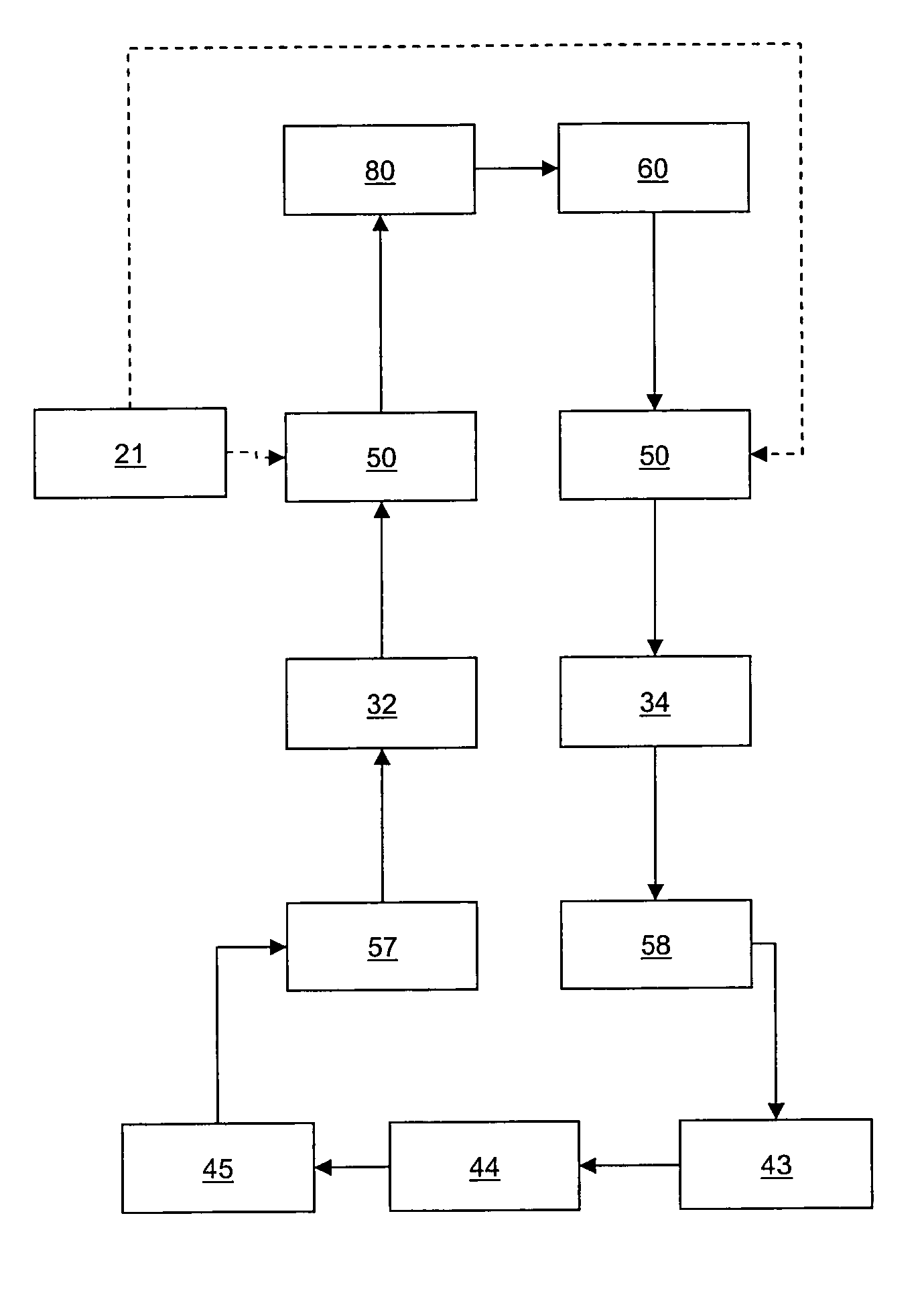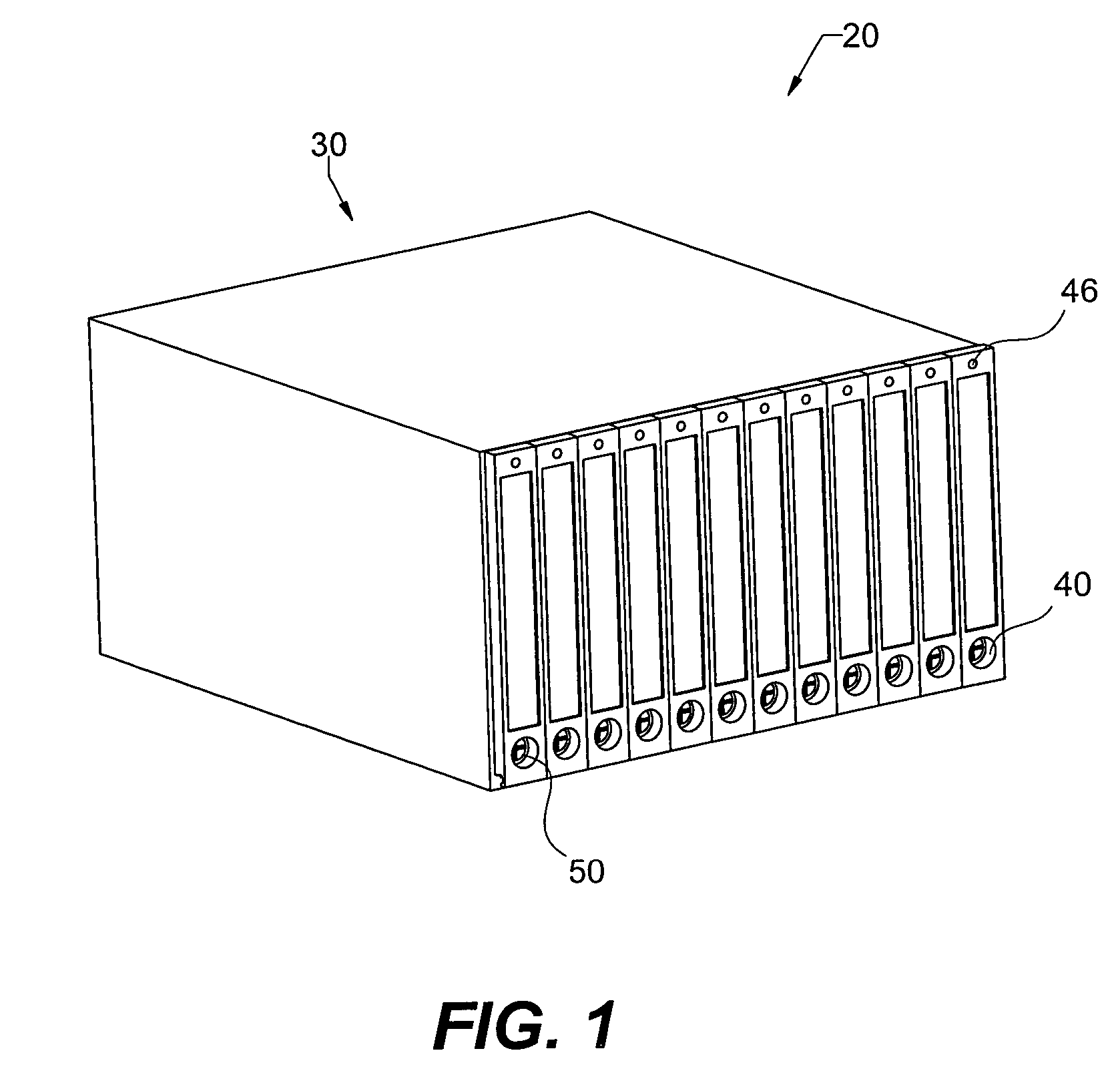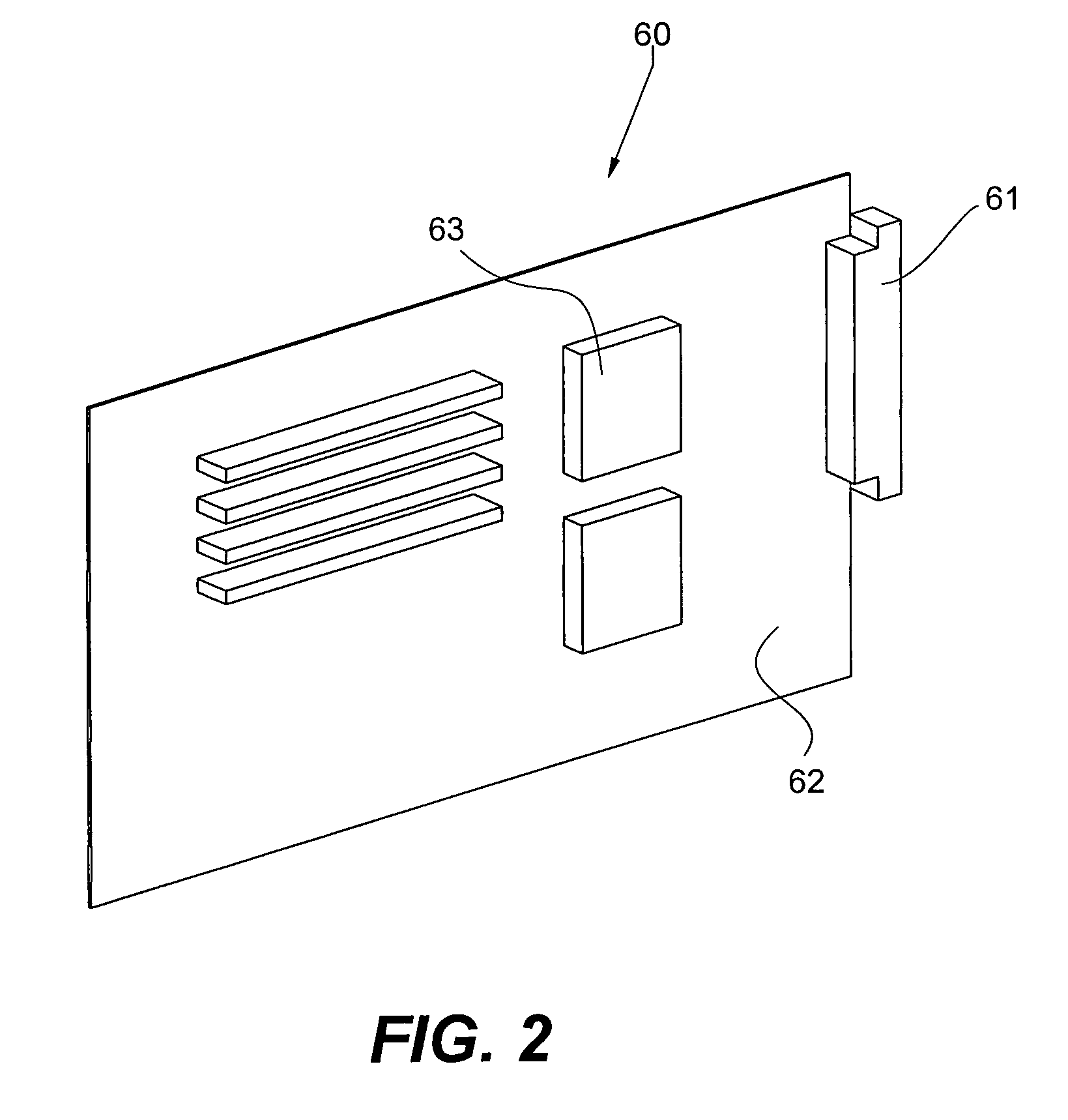Method of reducing fluid emissions from a global spray cooling system
a global spray cooling and fluid emission technology, applied in the field of liquid cooling systems, can solve the problems of difficult to get heat into dielectric fluids, poor heat transfer properties, and irreparable harm to electronic systems and components, and achieve the effect of reducing the amount of interaction and effective heat transfer rates
- Summary
- Abstract
- Description
- Claims
- Application Information
AI Technical Summary
Benefits of technology
Problems solved by technology
Method used
Image
Examples
Embodiment Construction
[0032]Many of the fastening and fluid components utilized and described in this invention are widely known and used in the field of the invention, and their exact nature or type is not necessary for a person of ordinary skill in the art or science to understand the invention; therefore they will not be discussed in detail.
[0033]As used herein, the term “card” generally refers to an electronic system that may produce heat. A card may include a blade server, a networking device, or any type of computer sub-system. In addition, the card may be a power device, such as a power supply, or a conversion device such as used for converting alternating current to direct current, or vice-versa. The present invention should not be construed to be limited to any one type of card system.
[0034]As part of the description of the preferred embodiment, the present invention is described for use with the dielectric fluid Fluorinert (a trademark of 3M). Fluorinert is brand that represents a family of per...
PUM
 Login to View More
Login to View More Abstract
Description
Claims
Application Information
 Login to View More
Login to View More - R&D
- Intellectual Property
- Life Sciences
- Materials
- Tech Scout
- Unparalleled Data Quality
- Higher Quality Content
- 60% Fewer Hallucinations
Browse by: Latest US Patents, China's latest patents, Technical Efficacy Thesaurus, Application Domain, Technology Topic, Popular Technical Reports.
© 2025 PatSnap. All rights reserved.Legal|Privacy policy|Modern Slavery Act Transparency Statement|Sitemap|About US| Contact US: help@patsnap.com



